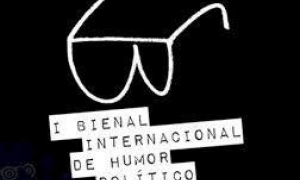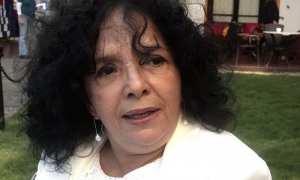
The creation of the Ministry of Culture was perhaps the biggest challenge faced by Dr. Armando Hart Dávalos in his revolutionary career.
An outstanding combatant of the underground struggle, member of the founding leadership of the 26th of July Movement; prisoner of the tyrannical regime. Upon the triumph of the Revolution he received a challenging assignment: to serve as the first Minister of Education of the new historical era opening in the country.
A creative interpreter of Fidel's ideas, Hart played a decisive role in the conversion of barracks into schools, the reforms of the universities, in the dignification of the role of the teacher, and above all in carrying out the National Literacy Campaign in 1961.
After the founding of the Communist Party of Cuba, he held high positions, among them that of Secretary of Organization. He had been elected member of the Political Bureau of the first Central Committee and served as First Secretary of the Party in the province of Oriente during the first five years of the 1970s.
It was at the end of that stage when, as part of the institutionalization process, the leadership of the country proposed him to take on the Ministry of Culture. There were no precedents, except for the National Council of Culture, which in recent years had behaved erratically. Fortunately, there were key entities in place, created in the early years of the Revolution, which set a guideline.
The Ministry of Culture had to create, and at best restore, a climate of trust among artists, writers and promoters, with a brand new institutional system. In my long conversations with Hart, he candidly confessed that the first thing worth asking was what was the job of a Ministry of Culture.
Observing other realities, he realized that there were countries where the ministry was restricted to operating plots in the public sphere, often at a disadvantage to the private sector: the neoliberal onslaught of the 1980s in Latin America and the Caribbean and the crisis of the welfare state in several European countries would confirm his perception.
By analyzing, as he always did, the management of the agencies in the Soviet Union and the European socialist bloc, he appreciated how aesthetic normativity, the discouragement of experimentation and dogmas significantly limited the artistic and literary creation and stimulated, in spite of everything, undesirable phenomena on the margins of society.
Before making any decision, Hart devoted himself to listen to all the criteria of Cuban writers and artists, specialists and academics, and Fidel in action with the imprint of the meetings that led to the current Palabras a los intelectuales (Words to the intellectuals). Only in such a way could he understand the complex nature of the processes, especially when the effects of the so-called gray five-year period were hovering over the cultural life of the nation.
In the exercise of his functions, in which he spent 21 years at the head of the Ministry, Hart came to a conclusion that should be analyzed in the light of our times: culture is promoted, not directed. This does not mean that certain processes should not be induced, that the necessary resources should be put into fundamental programs, and that, as he himself insisted, an economy of culture should be fostered. In distinguishing between promotion and direction, he drew attention to the need to banish interventionist and voluntarist practices and, on the contrary, to favor the highest values of cultural creation, whether they be those of tradition or the new essential values of development. For example, his involvement in the Havana Biennial and the Fiesta del Fuego.
In 1983, Hart tried to summarize some ideas about the permanent updating of cultural policy and the relationship between politics and culture in our revolutionary process. If we leave aside the anecdotal and circumstantial, the concepts contained in the book Changing the Rules of the Game, the result of an extensive interview with journalist Luis Baez, deserve to be revisited. Five years after the death of Dr. Armando Hart on November 26, there are many lessons and experiences that we should take advantage of for the improvement of the institutional system of culture.
Translated by ESTI






